China’s ‘Kingdom of Women’
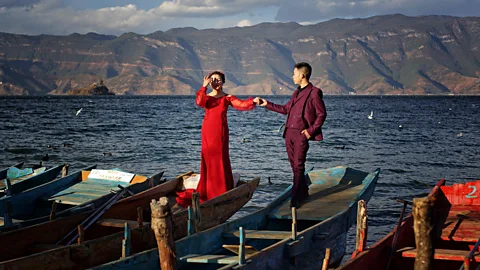
In the foothills of the Himalayas lies picture-perfect Lugu Lake, the home of the Mosuo people and the gateway to a mysterious land often dubbed ‘The Kingdom of Women’.

The Mosuo number approximately 40,000 people, and for centuries they have lived on the banks of Lugu Lake – which borders China’s Sichuan and Yunnan provinces – and in the surrounding mountains, grouped together in picturesque villages filled with timber homes.
At 2,700m above sea level, and with the nearest city some six hours’ drive away, the region’s remoteness has led to the preservation of customs not found anywhere else in the world.
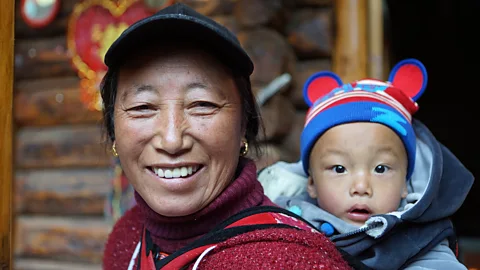
One of the most unique cultural traditions is zouhun or ‘walking marriages’. After a coming of age ceremony, Mosuo females can choose their lovers, having as many or as few as they wish within their lifetime.
During these ‘marriages’, men visit the woman’s home upon invitation, and stay the night in a designated ‘flower room’, leaving at daybreak to return to their own home. Couples do not live together, and babies are reared exclusively in the female’s family, with brothers and uncles providing the fatherly role.
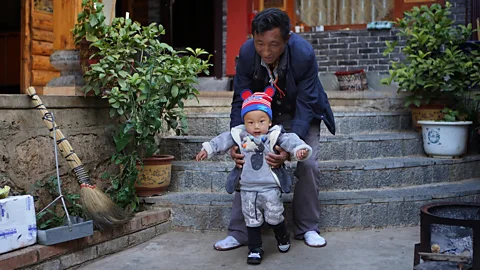
Men still play important roles in Mosuo society, however. Traditionally, they were often away from the village, travelling in trade caravans to sell local produce. They would also be responsible for house building and fishing, as well as the killing of livestock.
Most importantly, still today, while they are not responsible for their own children, they are financially responsible for the nephews and nieces living in their own households.

Though often referred to as one of the world’s last matriarchal societies, it is more accurate to call Mosuo traditions matrilineal. Men still wield political power in wider society, but women are the heads of their households and make decisions about family resources.
Wealth and property are ed through the mother upon death, giving Mosuo women a great deal of authority and freedom.
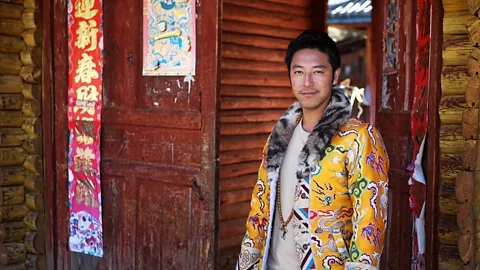
Yang Zhaxi is a young musician who grew up in a very traditional Mosuo home, raised by his mother and his aunties and uncles. His biological father was very present during his childhood, however, and he re frequent trips together to pick mushrooms or gather firewood.
His father still lives in the same village, and they maintain a strong bond.
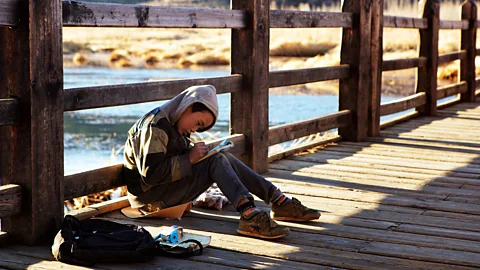
Really it depends on the character of the male. If he is kind-hearted, even though the marriage doesn’t work out, he would still take care of the kids, buy gifts for them and their education. After all, the kids are his children even if they aren’t his responsibility,” Zhaxi said.
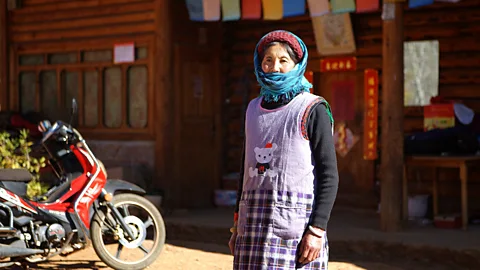
What’s unique about Mosuo marriages compared to other many traditional societies is that relationships are allowed to run their natural course, since the female is not dependent on the male for income. Zhaxi’s aunty, Yang Congmu, is the ‘Dabu’ or matriarch of her family, and was given the keys to the storehouse, a symbolic gesture making her the head of the household. Her first ‘husband’ was a carpenter and they met when he was building her house.
Yang Congmu wove a belt for her lover soon after they met to express her affection, as was the tradition at the time. Now modern couples are more likely to gift each other flowers or an iPhone.
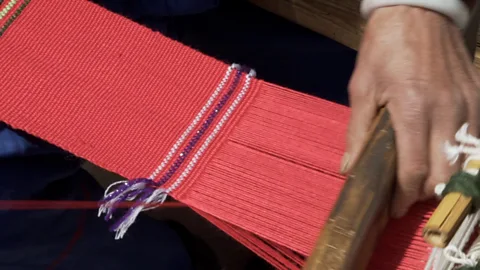
After a while, the love faded. My husband didn’t really have anything to do with the children and he stopped coming round. In Mosuo culture, relationships are all about mutual affection. When it fades, we move on,” Yang Congmu said.
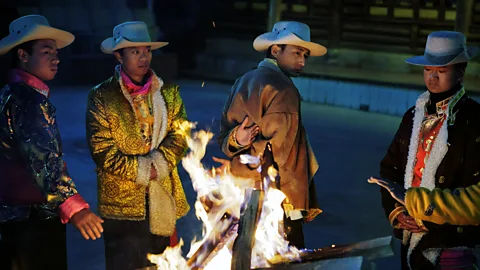
The Mosuo are not recognised by the Chinese government as one of the official 55 minorities groups, as their population is relatively small. On Zhaxi’s identity card, for example, he is identified as Mongolian.
The Mosuo are traditionally animists and believe in the idea of a Mother Goddess. This ancient religious system is mixed with the more recent import of Tibetan Buddhism, with many families sending a male member to become a monk.
The Mosuo also have some unusual beliefs, such as the veneration of dogs. There is a myth that long ago, dogs had a lifespan of 60 years while humans only lived for 13. Humans and dogs agreed to trade lifespans, and humans promised to pay their respects to dogs in return.
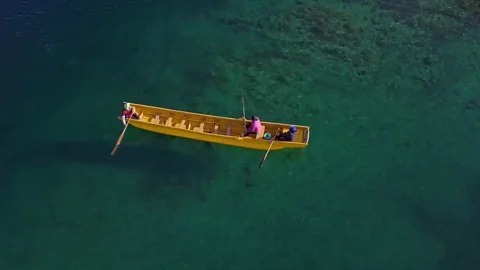
My grandpa told me that a long time ago, a platoon from Ghengis Khan’s army rode through this area on their way to battle and fell in love with the beauty of the lake. They decided to settle here, and that is how the Mosuo came to be,” Zhaxi said.
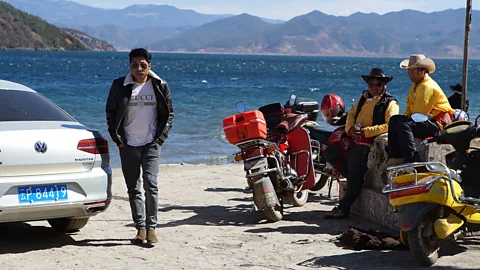
With the construction of a new road and airport nearby, opened in 2015, more and more tourists are coming to Lugu’s shores, bringing new beliefs and practices. Mosuo culture currently sits at a precarious juncture, caught between modernity and ancient tradition.
“Villagers living by the lake have built hotels for tourists. Some households with homes in good locations have become very wealthy now. Transport and other aspects have also become more convenient, and the Mosuo are exploring the outside world and experiencing new ideas,” Zhaxi said.

Mosuo views on love and marriage are being transformed by increased with the outside world. Young Mosuo are frequently attracted to the fairy-tale idealism of Chinese romantic movies, and more and more are choosing to marry in the traditional Chinese way, with couples cohabiting and taking marriage vows for life.
Zhaxi himself has married outside of his tribe, to a Han Chinese, and lives with her and their baby, believing it is a ‘simpler’ way of life. At the same time, he is still responsible for his sister’s children.
